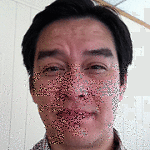 BY SCOTT PECK, DIRECTOR OF POLICY, NATIONAL ASIAN PACIFIC CENTER ON AGING
BY SCOTT PECK, DIRECTOR OF POLICY, NATIONAL ASIAN PACIFIC CENTER ON AGING
Asian American and Pacific Islander (AAPI) elders are one of the fastest-growing groups of ethnic elderly in the U.S. but remain largely invisible. Each elder faces unique challenges to obtaining a high quality of life in their later years. Unfortunately, AAPI elder needs are not well-researched, their concerns are often not addressed by current public policies, and few programs and services are designed for their specific needs. Language and cultural barriers present difficult barriers to care since programs and services designed for a broader population are often inaccessible to AAPI elders due to limited outreach efforts in their communities. According to the US Census’ American Community Survey, only 41 percent of AAPI elders feel that they speak English “very well.” Limited English proficiency has profound effects on the ability of AAPI elders to access essential services and understand their rights and obligations.
It is important to remember that this inaccessibility is occurring within rapidly changing demographics. AAPI elders are a growing and diverse population – 2.8 million AAPI elders live in the U.S., with significant numbers of AAPI elders living in California, Hawaii, New York, Texas, and New Jersey. Over time, the numbers of AAPI elders will continue to grow. Between 2010 and 2050, the AAPI elder population 65 years and older is expected to grow 466 percent, while the total population of American elders will grow 120 percent.
AAPI elderly face a number of critical health disparities, including a disproportionately high prevalence of hepatitis B, tuberculosis, and dementia. Over half of the 1.25 million Americans with chronic hepatitis B infection are AAPIs. In 2007, tuberculosis was 24 times more common among Asian Americans than among whites. Furthermore, older Asian Americans show a greater prevalence of dementia than the total older population, while Asian American elderly women have the highest suicide rate of all women aged 65 and older.
In addition to such critical physical and mental health disparities, AAPI elders lag behind in accessing and receiving preventative care. AAPI elders are uninsured at more than double the rate of non-Hispanic white elders and specific subgroups lack insurance at rates as high as 33 percent.
The growing numbers of AAPI elders make the unique needs of this population more pressing than ever. The National Asian Pacific Center on Aging (NAPCA) continues to work diligently to ensure that all AAPI elders are able to age with dignity, well-being, and a high quality of life.
Scott Peck is the Director of Policy at the National Asian Pacific Center on Aging (NAPCA). The opinions expressed in this article are those of the author and do not necessarily reflect those of the Diverse Elders Coalition.

